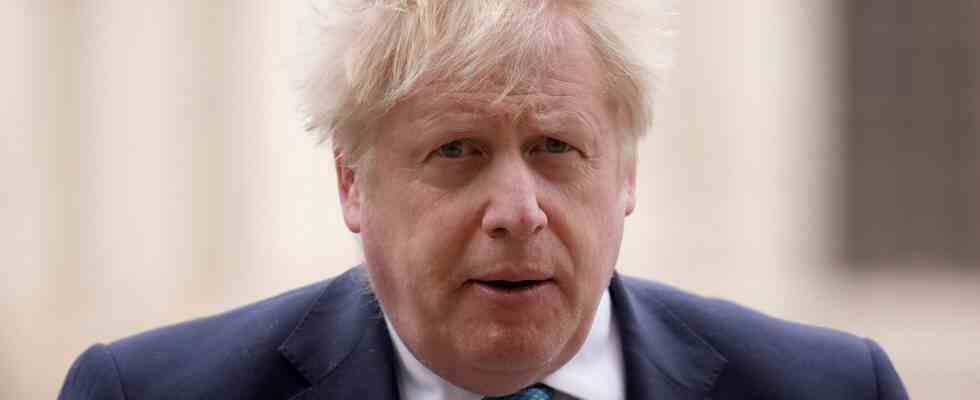Status: 06.05.2022 12:30 p.m
According to the first results, Prime Minister Johnson’s Conservatives have suffered painful losses in the local elections in Great Britain. Johnson could now come under pressure – even in his own party.
British Prime Minister Boris Johnson and his Conservative Party are suffering heavy losses in local elections. According to initial results, the Tories lost control of the boroughs of Barnet and Wandsworth in London, which had been firmly in their hands for decades. Daniel Thomas, Tory leader of Barnet Borough Council, said of the preliminary result: “It’s a warning shot from Conservative voters.”
But not only the district of Wandsworth went to the opposition Social Democrats for the first time in four decades. Labor also won in the port city of Southampton in southern England and in the newly created constituency of Cumberland in north-west England. Labor also claimed victory in the prestigious and long Conservative-dominated Westminister district of central London.
‘Huge turning point’ for Labour
Outside of London, Labor in England has had limited success based on past results. Labor leader Keir Starmer described his party’s good performance in the London boroughs as a “huge turning point”. “We changed Labor,” he said, speaking of a “message” to Johnson.
According to initial results, smaller parties such as the Liberal Democrats and the Greens were also able to gain ground.
A total of thousands of seats in local and district councils in large parts of England as well as in Wales and Scotland were voted on Thursday, and a new regional parliament was elected in Northern Ireland. In England, just over a third of boroughs have already had their votes counted. In Scotland, Wales and Northern Ireland, the counting of votes was due to start on Friday morning.
Elections first mood test after “Partygate”
The regional and local elections in Great Britain are actually about concrete local politics, and participation is traditionally rather low. However, this year’s results could radiate: They are considered the first major mood test after the so-called Partygate scandals, in which Johnson was also involved. Parties at the prime minister’s official residence despite the current corona lockdowns had aroused the displeasure of many voters. In addition, the focus is also on the drastically increased cost of living. The Tories are accused of not getting a grip on them.
A weak result for the Tories would give a boost to Prime Minister Johnson’s critics in their own ranks, who doubt his ability to win a majority in the general election, which is due to be held by the end of 2024. During the election campaign, conservative candidates had distanced themselves from Johnson in many places and, in some cases, pleaded on ballot papers not to blame them for government mistakes.
Northern Ireland results particularly explosive
The election of the regional parliament in Northern Ireland is particularly explosive. Results are not expected until Friday, but according to polls, the Catholic-Republican party Sinn Fein is likely to become the strongest force for the first time in the 100-year history of the British province.
Sinn Fein had previously promised a vote on reunifying British Northern Ireland with the Republic of Ireland. So far, one party has always emerged as the winner, which is committed to maintaining the union with Great Britain.
Sinn Fein and DUP
The Catholic Republican Party sense fine was once considered the political arm of the militant organization IRA (Irish Republican Army), which fought violently for a union of Northern Ireland with the Republic of Ireland.
the DUP (Democratic Unionist Party) is a Protestant Unionist party opposed to the union of Northern Ireland with the Republic of Ireland.
Should Sinn Fein actually become the strongest force, the formation of a regional government could become difficult. Then the party would be entitled to the office of head of government (First Minister). The 1998 peace agreement known as the Good Friday Agreement envisages a unity government made up of the largest parties from both denominational camps. Whether the government can be formed depends on the consent of the DUP and is therefore considered questionable.
The DUP has committed itself to the categorical rejection of the special status for Northern Ireland laid down in the Brexit agreement and in February burst the previous unity government in the dispute over it. Experts expect the DUP to maintain its blockade.

